Chief Executive Officer (CEO) – Prof Sarah Mosoetsa

Prof Sarah Mosoetsa is the former CEO of the National Institute for the Humanities and Social Sciences (NIHSS), a position that she vacated on 31 January 2023 to take up the position of CEO at the HSRC. She was instrumental in establishing and setting up the NIHSS in 2013 and held the position of CEO at the Institute since 2014. She currently serves as the interim chairperson of the South African Think Tank (SABTT) and is a member of the BRICS Think Tank Council (BTTC).
Mosoetsa holds a Doctorate in Sociology from the University of the Witwatersrand. She is an Associate Professor of Sociology at the same University and the author of several publications, including, amongst others, “Eating from one Pot: Dynamics of Survival in Poor South African Households” (Wits Press) and co-editor of “Labour in the Global South: challenges and alternatives for workers” (ILO), and co-editor of “Precarious Labor in Global Perspective” (Cambridge University Press).
She has worked for various organisations, including the Society, Work and Politics Institute (SWOP), the Human Sciences Research Council (HSRC), and the Development Bank of Southern Africa (DBSA). Mosoetsa sits on various Boards and Committees, inter alia, the National Minimum Wage Commission, the University of Venda Council, and the Advisory Board for the Southern Centre for Inequality Studies at the University of the Witwatersrand.
HSRC Board
The Board of the HSRC refers to the group of up to ten people, including a Chairperson, appointed for a period of four years by the Minister of Science and Innovation. Appointees have distinguished themselves in the field of the human sciences or possess special qualifications in relation to some aspect of the functions of the Board. The Board appoints the Chief Executive Officer of the HSRC and s/he serves as a further, ex officio member. The Board is the accounting authority of the organisation for purposes of the Public Finance Management Act.
Dr Cassius Lubisi (Chairperson)
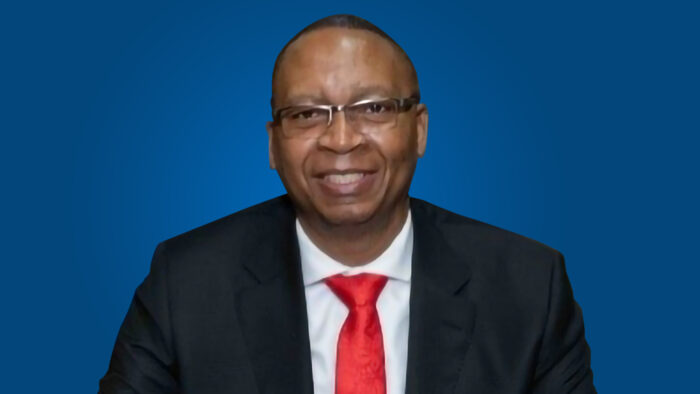
Dr Cassius Lubisi holds a PhD from the University of Nottingham, United Kingdom, a BSc from the then University of Natal, a higher diploma in education and Bachelor of Education degree. He served as superintendent-general of the KwaZulu-Natal Department of Education from June 2005 to October 2010 and Director-General in the Presidency from 2010 until August 2020.
He was appointed special advisor to the former Minister of Education Kader Asmal in 2003 and Deputy Director-General of general education in the Department of Education in 2004. Lubisi has served as a member of the national advisory group of the Culture of Learning Presidential Lead Project in 1995; member of the Ministerial Review Committee on Curriculum in 2005; chairperson of the Ministerial Project Committee on the National Curriculum Statement Grade 10–12, and member of the education advisory committee of the Nelson Mandela Foundation. He is currently a member of the ministerial task team investigating allegations of corruption, fraud and maladministration in the South African National Defence Force and chairperson of the ministerial committee on the issuance of visas and permits, Ministry of Home Affairs.
Lubisi was appointed chairperson of Morar Incorporated in April 2021, member of the board of Armscor in December 2020, and chairperson of the Human Sciences Research Council on 1 November 2021.
Dr Kgomotso Kasonkola
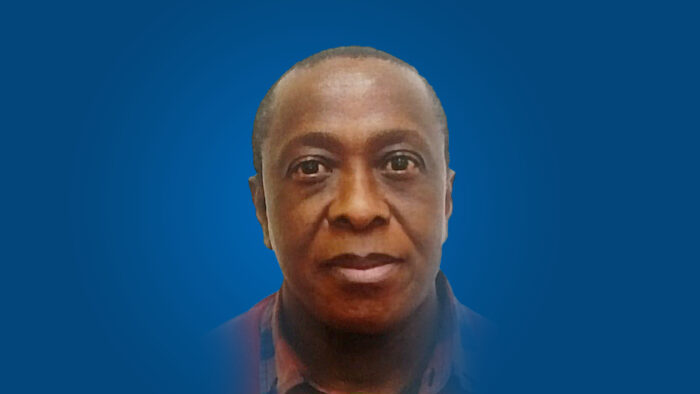
Dr. Kgomotso Kasonkola holds a PhD in Organisational Behaviour from the University of Pretoria. He is currently the senior director of human resources at the University of the Witwatersrand (WITS) and chairperson of the WITS Retirement Fund. Kasonkola serves on the remuneration committees of WITS Enterprise and the WITS Health Consortium. He is also a member of the University Senate.
From a higher education sector perspective, he chairs the Human Resources (HR) Directors’ Forum, a community of practice under the auspices of Universities South Africa (USAf), representing this body at the HR Steering Committee of the Association of Commonwealth Universities. Kasonkola is also a member of the USAf’s HR and Remunerations Committee. He has previously served on the boards of Protec, Vaal University of Technology Provident Fund (as chairperson), Bestmed, WITS University Medical Aid (until it was merged into Discovery Health), and ETDP-SETA (chairing its Research Chamber). He has supervised master’s students at VUT, served as an external examiner for its HR programmes, and has supervised MBA students at WITS Business School.
Dr Len Konar
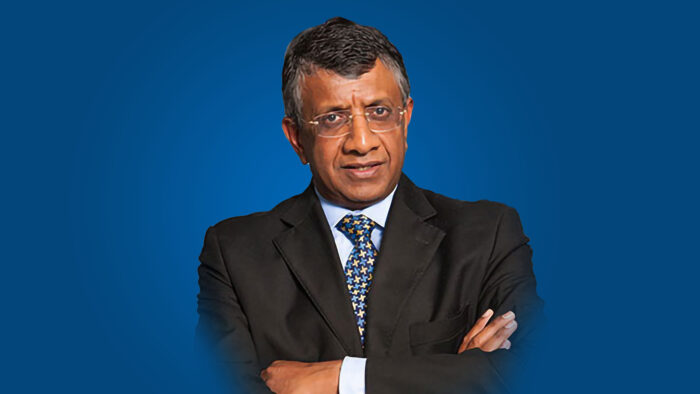
Dr Len Konar is a Chartered Accountant and was previously the executive director of the Independent Development Trust where he was, amongst other activities, responsible for the Internal Audit and Investments Portfolios. Prior to that, he was a professor and head of the Department of Accountancy at the University of Durban-Westville. He also lectured to graduate students at various South African universities.
He is a member of the King Committee on Corporate Governance, the Corporate Governance Forum, the Institute of Directors and the National Association of Corporate Directors (USA).
Konar is a past independent non-executive director of Alexander Forbes, Steinhoff, Old Mutual, the South African Reserve Bank, Illovo Sugar, Lonmin PLC, Sappi, and Exxaro Resources. He has also chaired or served on the audit committees of some of these boards. Currently, he serves as an independent nonexecutive director of the Guardrisk group of companies, as well as several specialist boards and committees.
He is the past chairperson of the Ministerial Panel for the Review of Accountants and Auditors in South Africa, which resulted in the publication of the Auditors Professions Act, 2005. He was also the co-chair of the Independent Oversight Panel of the World Bank (2009–10) and the past chairman and member of the External Audit Committee of the International Monetary Fund (IMF) in Washington (2004–07), as well as a member of the 2010 Safeguards Panel of the IMF and a member of the Ethics Panel of the United Nations Ethics Committee.
Konar has participated in seminars and workshops internationally and also published journal articles and contributions to books. He participates in a wide range of hobbies and is a keen sportsman and reader of business biographies.
He mentors and supervises PhD and MBA candidates at the Gordon Institute of Business Science (GIBS) and the University of South Africa (UNISA), as well as MBA candidates at Wits Business School (WBS) and other local universities. He is also a presenter on executive leadership programmes at GIBS, WBS and Duke Corporate Education.
Prof Ibbo Mandaza
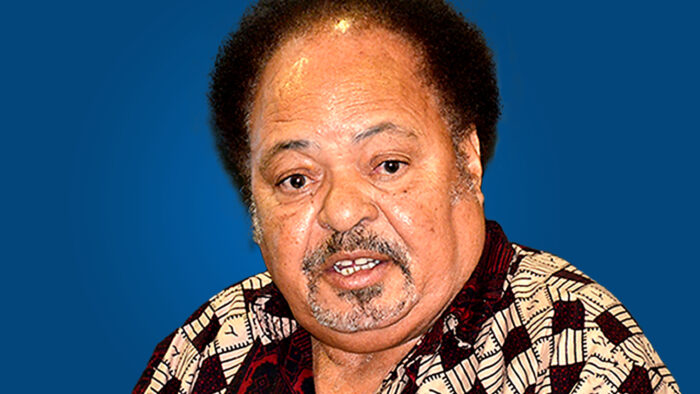
Prof Ibbo Mandaza is a Zimbabwean academic, author and publisher. He holds a Doctor of Philosophy in Political Economy from the University of York in England (1979) and has taught at the Universities of Botswana, Zambia, Dar es Salaam and Zimbabwe. He has researched and written extensively on issues of governance, international relations and public policy. Mandaza was one of the first senior African civil servants in post-independent Zimbabwe (1980–90), having been a member of the Zimbabwe National Liberation Movement, in the Department of Research, Education and Manpower, ZANU Headquarters, Maputo, Mozambique. He served as director of the National Manpower Survey and as permanent secretary in the Ministry of Manpower Planning and Development; as the deputy chairman of the Public Service Commission; member of the Defence Forces Commission, and as chairman of the Parastatals Commission, before his early retirement from the Civil Service in July 1990 at the age of 42.
Mandaza is currently the executive chairman of a regional think tank, the Southern African Political Economy Series Trust and convenor of the Policy Dialogue Forum.
Dr Mogale Mashilo
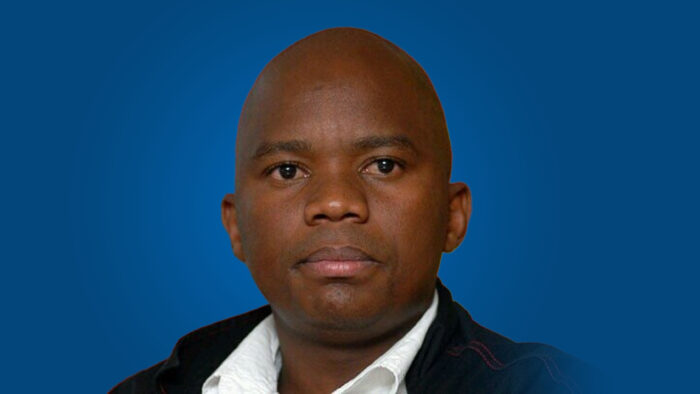
Dr Alex Mashilo studied Labour Law after obtaining a National Diploma in the field of engineering while working in the automotive manufacturing industry. He was later appointed by the National Union of Metalworkers of South Africa (NUMSA) to various responsibilities, including positions as coordinator of the national automotive and new tyre manufacturing sector, chief negotiator in the Automobile National Bargaining Forum and the New Tyre Manufacturing Industry Bargaining Council, and as head of the Department for Organising, Collective Bargaining and Campaigns.
Mashilo holds an MA in Labour Policy and Globalisation (2010) and a PhD (2019) from the University of the Witwatersrand (WITS), Johannesburg. His PhD study focused on economic and social upgrading in global production networks and the automotive manufacturing industry as the empirical case. Mashilo’s research interests are based on his MA and PhD studies and include economic and social upgrading, global production networks/value chains, changes in the labour process and production technology, their implications for work, workers, and their responses. He is currently a visiting researcher at the Southern Centre for Inequality Studies at WITS and a special advisor to the Premier of Limpopo Province. Mashilo served as a non-executive board member of the National Institute for the Humanities and Social Sciences and the Manufacturing, Engineering and Related Sector Education and Training Authority, and on the Council of the North-West University.
Prof Zethu Nkosi
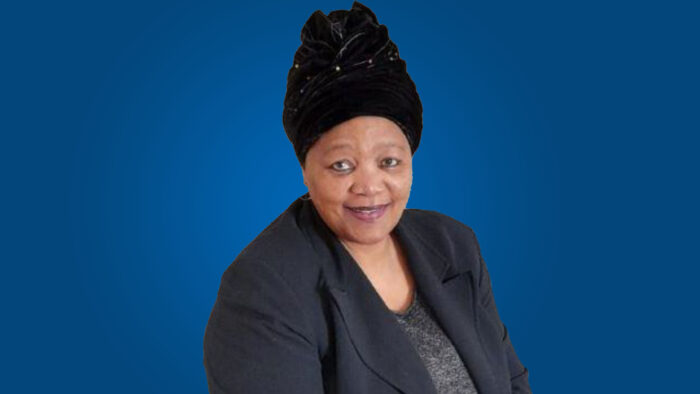
Prof Zethu Nkosi holds a doctoral degree from the University of KwaZulu-Natal and is currently the deputy executive dean at the College of Human Science, University of South Africa.
She has published more than 40 articles in accredited journals and supervised 16 PhD and 25 MA students to completion.
Nkosi is a fellow of the Global Nursing Leadership Institute, which is a leadership programme initiative of the International Council of Nurses. She is also an active member of the World Health Organization Collaborating Centre in the Afro region
Shameme Manjoo
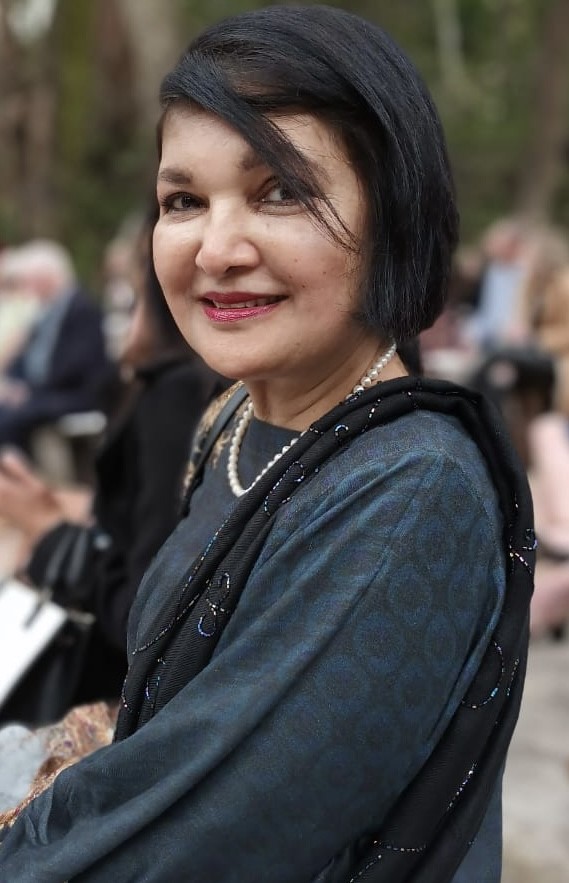
Shameme Manjoo holds a Master of Education (Curriculum Development) from the then University of Natal. An educationalist by training, Manjoo’s expertise lies within the umbrella discipline of Human Rights Education (HRE). She has a deep understanding of the pedagogical, theoretical and legislative frameworks that underpin HRE, has developed curricula and conducted cross-sectoral training in various HRE approaches, including civic and democracy education and anti-racist, anti-sexist education, and published human rights school textbooks for Southern Africa with Macmillan.
Her signature experience spans 20 years of engagement with substantive human rights, democracy and electoral matters at the South African Human Rights Commission (SAHRC) (2000–07) and the Electoral Commission of South Africa (IEC) (2008–20).
At the SAHRC, she co-convened the National Forum for Democracy and Human Rights Education (2000–07), managed the National Consultative Forum against Racism in Education (2002–05) and served on the executive of the Democracy, Human Rights, Peace Education and Elections Standards Generating Body for the South African Qualifications Authority (2003–05).
As Senior Manager: Civic Education, Research and Knowledge Management at the IEC (2008-2020), she steered the design and implementation of civic and democracy education. She lectured on the educational mandates of African electoral management bodies at UNISA, as part of the Management of Democratic Elections in Africa Programme (2011–19).
Manjoo has high-level research experience. As head of the Civil Society Advocacy Programme at the SAHRC, she managed a suite of studies promoting institutional strengthening (2006–07). At the IEC, she managed the research agenda and deliverables, which included a longitudinal study series emanating from the IEC/HSRC partnership, notably the voter participation and election satisfaction surveys.
Manjoo has worked extensively on inclusion related to race, disability, gender and other grounds. Promoting access to the vote for marginalised groups has been pivotal. She spearheaded the design and production of the Universal Ballot Template, an assistive voting device for the visually impaired. Most recently, in her current role as an HRE, democracy and elections adviser she co-authored a self-study manual Advancing Political and Electoral Inclusion for LGBTQI+ People (2021).
Adv Pansy Tlakula
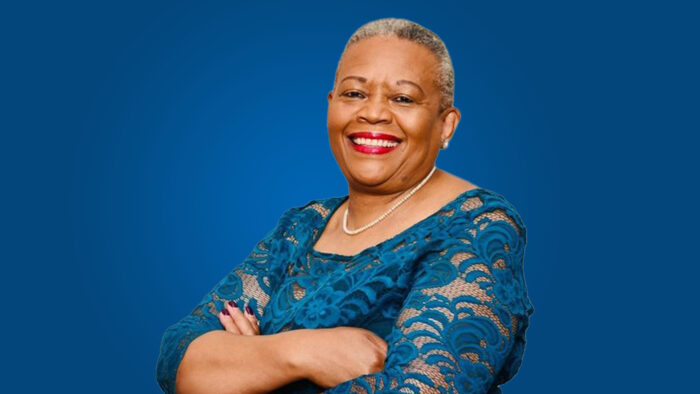
Adv Pansy Tlakula holds a BProc degree from the University of the North (now University of Limpopo), an LLB degree from the University of the Witwatersrand and an LLM degree from Harvard University. In 2006, she was awarded an honorary doctorate in legal studies by the Vaal University of Technology (VUT).
Tlakula has held high-profile positions in the academia, public and private sector. These include senior lecturer of law at the then University of Bophuthatswana (now North-West University), national director of the Black Lawyers Association, one of the founding commissioners of the South African Human Rights Commission, chairperson of the Board of the National Credit Regulator, chairperson of the council of the then University of the North West (now North-West University) and the chancellor of VUT. She was also an independent non-executive director of the Bidvest Group Limited and the chairperson of the Electoral Commission of South Africa. Tlakula is the former chairperson of the African Commission on Human and People’s Rights (AU Organ) and its special rapporteur on freedom of expression and access to information. She is currently a member of the United Nations Committee on Elimination of Racial Discrimination.
Prof Fiona Tregenna
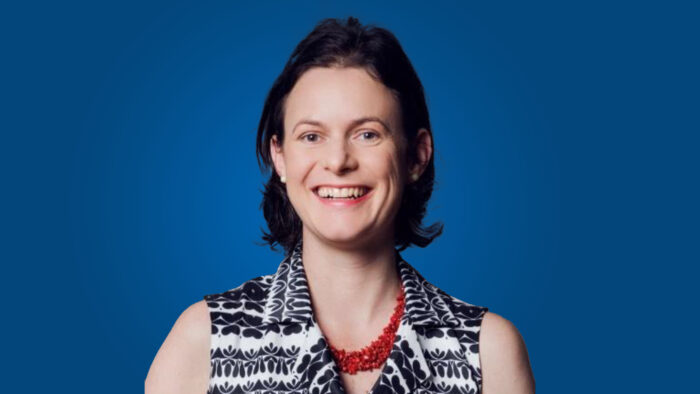
Prof Fiona Tregenna holds the DSI/NRF South African Research Chair (SARChI) in Industrial Development, leading this centre of research, training and policy engagement, and is also a professor of economics at the University of Johannesburg.
Tregenna sits part-time on the South African Competition Tribunal, where she adjudicates competition cases. She is a member of President Cyril Ramaphosa’s Presidential Economic Advisory Council. She serves on several boards, panels and councils, and has extensive corporate governance experience. She has consulted for and advised international organisations such as UNIDO, UNCTAD and the ILO, including contributing to various flagship United Nations publications.
Her primary research interest is in issues of structural change, deindustrialisation and industrial development. Tregenna has also published on poverty, inequality and unemployment. She has recently co-edited two major volumes with Oxford University Press (The Oxford Handbook of the South African Economy; and Structural Transformation in South Africa: The Challenges of Inclusive Industrial Development in a Middle-Income Country). She has delivered invited keynote addresses at many international conferences. Her research has been recognised with a number of grants and awards, and she has served as Principal Investigator for large research projects. She is an elected member of the Academy of Science of South Africa (ASSAf) and serves on several ASSAf bodies. She currently serves on the editorial boards of several international journals and a book series and reviews extensively for many journals and book publishers.
Tregenna holds a PhD in economics from the University of Cambridge, a master’s degree in economics from the University of Massachusetts (Amherst), and earlier degrees from the Universities of the Witwatersrand and Natal.
Board Secretariat
Mandate
It is the mandate of the HSRC Board Secretariat to provide top-level secretariat and administrative support to the Board of the HSRC and the Board sub-committees, and to disseminate decisions of the Board to relevant stakeholders and follow up on agreed actions.
Unit Head: Marizane Rousseau
Marizane Rousseau
Marizane Rousseau is the current HSRC Board Secretary.
Telephone: +27 (0)12 302 2009
E-mail: mrousseau@hsrc.ac.za
